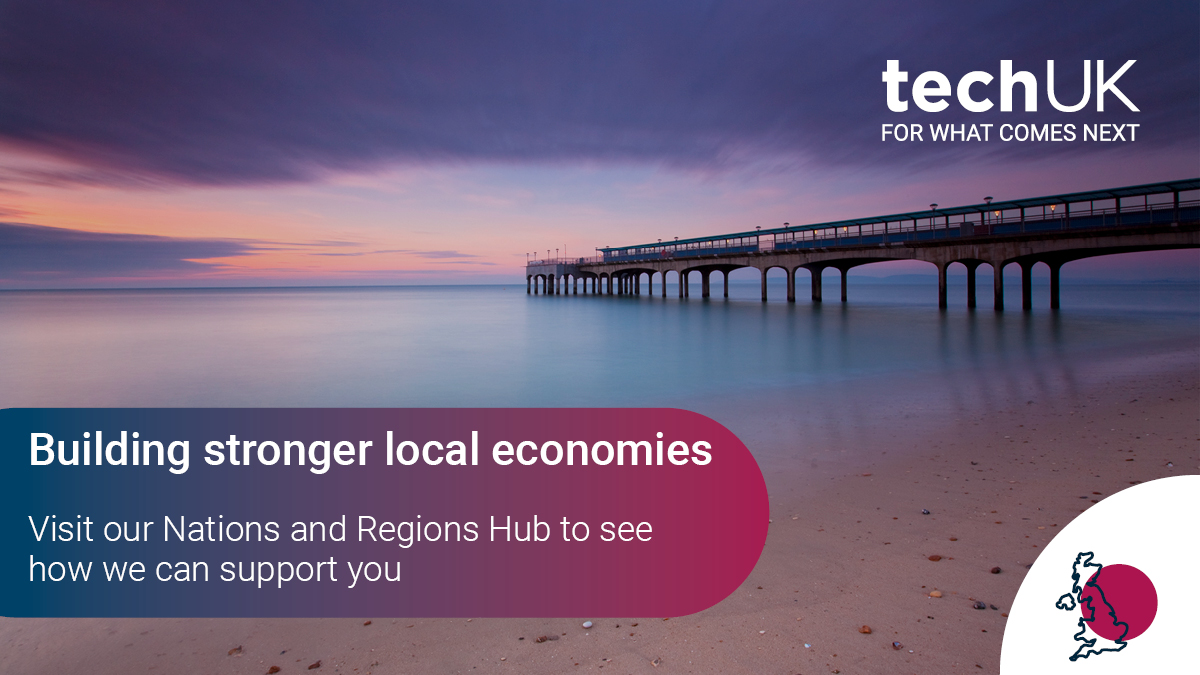The prize on offer for better connected places and spaces across the UK
We spend much of our lives in the digital world, escaping our local “place” by entering a virtual “space”, whether this is by joining a collaborative Teams call with colleagues across the globe or streaming a Korean TV series. And for many enjoying this online excursion, perhaps less thought is given to the process in which that digital world is accessed and entered.
Because the digital world is really about physical infrastructure - the fibre, masts, cells, submarine cables and cabinets - and where this infrastructure is “placed” to work, and connect, most effectively.
Greater speeds and higher levels of access allow more people to utilise the digital tools and services upon which lives increasingly rely, and poor connectivity and infrastructure can have a severe, highly localised, effect.
The rollout of digital infrastructure in the UK, primarily mobile and fixed, is delivered by private sector capital investment in an environment in which the biggest cities, that have the biggest populations, are the most commercially attractive to investors. As a consequence, some local areas of the UK - particularly rural and smaller communities - could miss out on the benefits advanced connectivity promises.
Digital infrastructure as a key building block for Local Digital Capital
As techUK’s Local Digital Capital Index describes, digital infrastructure, such as 5G, is a key building block of strong place-based digital technology ecosystems, alongside other markers like digital skills, trade support and R&D. Taking this concept further, a new Vodafone report analyses the impact of an unattractive investment environment across the UK’s nations and regions.
‘‘Digital Ambition 2030’ sets out how, the difference between a good investment environment for full 5G and a poor one is worth as much as £2.6 billion per year by 2025 and £7 billion per year by 2030 in terms of economic output. And this difference is not felt equally across the country, but sees smaller cities and medium-sized towns losing out in every region and nation of the UK except London: exactly the places the Government wants its Levelling Up strategy to help.
Concluding its report, Vodafone sets out a number of recommendations to improve the investment picture, and crucially, how the whole of the UK can benefit from advanced communications services like 5G:
- Vision – and the importance of the government having a clear, ambitious vision and backing it up with a strategy, policy and regulation to deliver it.
- Identifying priority sectors for 5G uptake, particularly among SMEs
- Procurement - “Government needs to show leadership through its own procurement, simultaneously encouraging innovation, creating market demand and benefiting itself, on behalf of the taxpayer, from the 5G-related processes and services it procures.”
- Regulation that promotes investment in 5G
Of course, it’s not just 5G set to make an impact on the government’s Levelling Up agenda. Another recent report by CityFibre analysed the economic benefits of fibre rollout in the north of the UK.
As we look ahead to the 2022 launch of techUK’s Local Digital Capital Index in Manchester, and our dedicated Digital Infrastructure panel, these studies and research underscore two issues: firstly, we need to ensure the policy and regulatory frameworks for the rollout of telecoms infrastructure is attractive for all parts of the UK, not just its major cities. And secondly, there is tangible evidence of both the economic and social benefits for getting more of us transported into the digital world.
If you are interested in shaping techUK’s work in this area – sign up to our Telecoms Infrastructure and Deployment Working Group.
techUK – Building Stronger Local Economies
techUK champions the tech sector throughout the UK. We work with local authorities, devolved government, and local and national policy makers to advocate for the tech sector in strengthening economic growth and resilience. We provide opportunities for our members and local stakeholders to meet, build relationships, and collaborate to drive forward local projects. For more information or to get in touch, please visit our Nations and Regions Hub and click 'contact us'.





